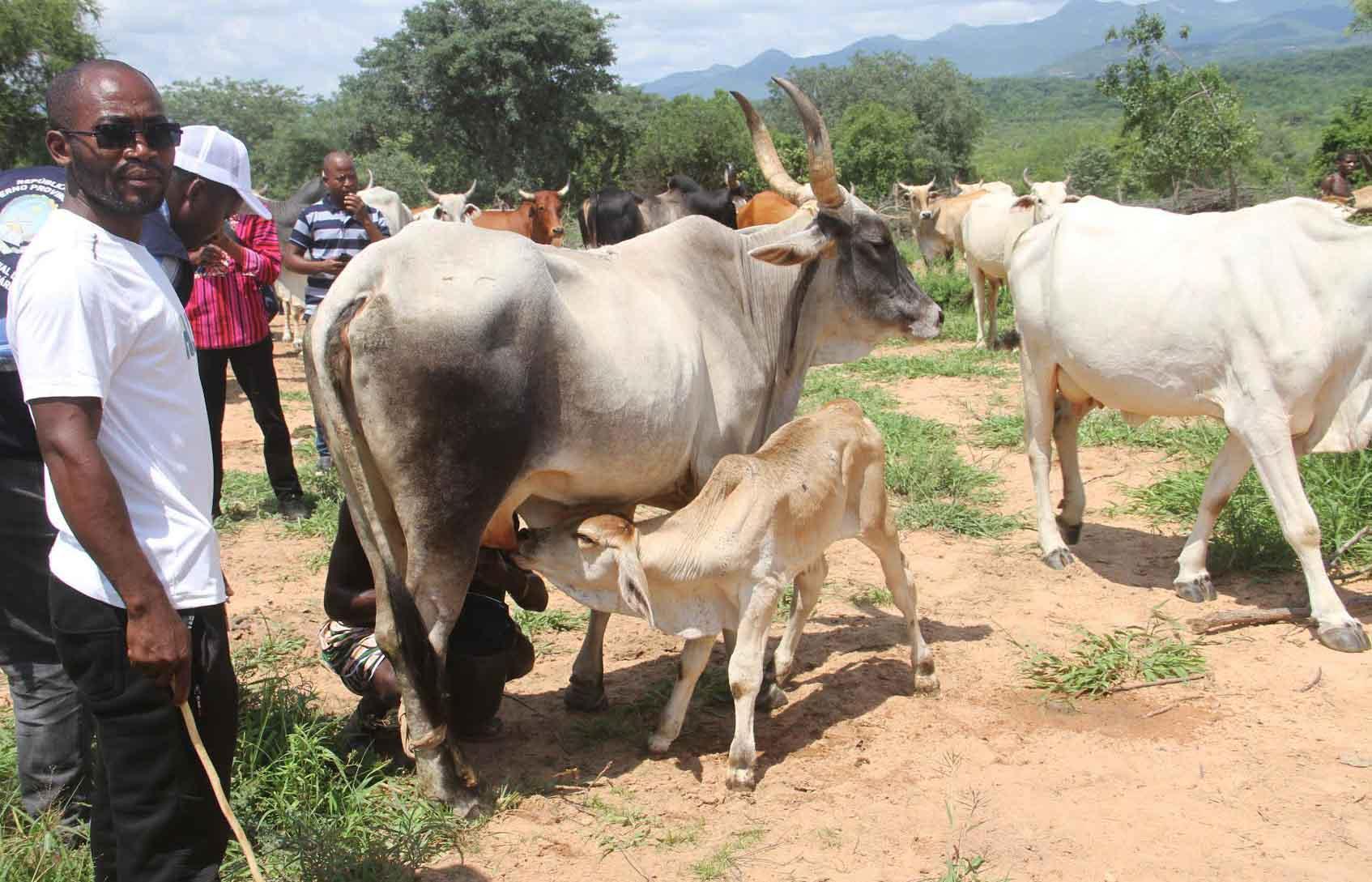Africa-Press – Botswana. Farmers in Kgalagadi have been encouraged to adopt proactive herd health management practices to boost productivity and profitability in the livestock sector.
Addressing farmers during a recent first annual Ko Morakeng Lifestyle Camp, Beef Production Farming Seminar, veterinary expert Dr Michael Sento emphasised the critical importance of disease prevention and the responsible use of antibiotics. Dr Sento advised farmers not to wait for outbreaks before taking action, highlighting that preventive care was not only more effective, but also more economical. He pointed out the high costs associated with antibiotics and warned that their misuse could have serious long-term consequences.
“Antibiotics are expensive and should not be administered to healthy animals,” Dr Sento explained.
He shared that overuse and under-dosing contributed to antimicrobial resistance, making medications ineffective when they are genuinely needed. Dr Sento further warned that injecting healthy animals unnecessarily accelerated the development of resistance, which could pose a severe threat to both animal and human health.
“If antimicrobial resistance continues to rise, we could face a future where no effective medication is available,” he said.
To address this, Dr Sento urged farmers to use antibiotics responsibly and to educate themselves about the diseases prevalent in their regions. He encouraged them to strive to develop their own vaccination schedule as attending to specific diseases in their farms could reduce farm cost, rather than following vaccination schedules provided by farm supply specialists, noting that these programmes offered valuable guidance on disease prevention. On the issue of food safety, Dr Sento warned against the consumption of meat from animals recently treated with antibiotics, as such could further contribute to resistance in humans.
“This is not just about animal health, it is also a matter of meeting market standards,” he stressed, pointing to increasing consumer and regulatory demands for antibiotic-free products.
He also highlighted Kgalagadi’s relative advantage, noting that the district was largely free from many livestock diseases, which reduced the need for extensive medical intervention. Dr Sento encouraged farmers to capitalise on this by choosing livestock breeds well-suited to the local environment.
“Exotic breeds such as Charolais may be attractive, but they are not ideal for the harsh Kgalagadi conditions,” Dr Sento cautioned. “Farmers should not be misled by those who fatten and sell animals quickly. Success in farming is about long-term sustainability, not short-term gains,” he added.
He recommended indigenous breeds as a more appropriate and cost-effective choice, noting that poor production often resulted from mismatches between breed type and environmental conditions. Addressing herd reproductive health, Dr Sento identified management gaps such as inconsistent kraalling, which could make it difficult to monitor breeding cycles.
On the topic of inbreeding, he noted that it was not inherently problematic if the animals possessed strong traits. However, he advised farmers to avoid inbreeding when undesirable physical characteristics were present. Dr Sento concluded by encouraging farmers to prioritise knowledge, forward planning, and responsible herd management as the keys to successful and sustainable livestock farming.
In his welcome remarks, Kwa Morakeng Lifestyle Camp founder, Mr Seeletso Komoki, emphasised the importance of farming with purpose, productivity, and resilience. He highlighted the need for sustainable practices and continuous learning to overcome challenges in the agricultural sector.
“Our mission is to farm with productivity and aim for increased production,” Mr Komoki stated.
He noted that farming was often threatened by various challenges that, if not properly managed, could lead to business failure. For that, Mr Komoki stressed that farmers must be aware of certain practices that could negatively impact their operations.
“In everything we do as farmers, we must understand that some actions can set us back. It is important to be informed and deliberate in how we farm,” he said.
To address these issues, Mr Komoki said the objective of initiatives, similarly to the seminar was to empower farmers with knowledge and skills that would help them grow and sustain their businesses.
“Empowerment through knowledge is key. Once farmers understand best practices, they will be in a better position to make decisions that support their long-term success,” he said.
He added that the seminar also served as a platform for farmers to network and build lasting relationships that encouraged knowledge-sharing and collaboration beyond the event itself.
“By connecting with one another, farmers can continue to learn, innovate and support one another as a community,” Mr Komoki concluded.
The seminar brought together farmers and agricultural experts with the shared goal of fostering sustainable farming and improving productivity in the region.
For More News And Analysis About Botswana Follow Africa-Press






